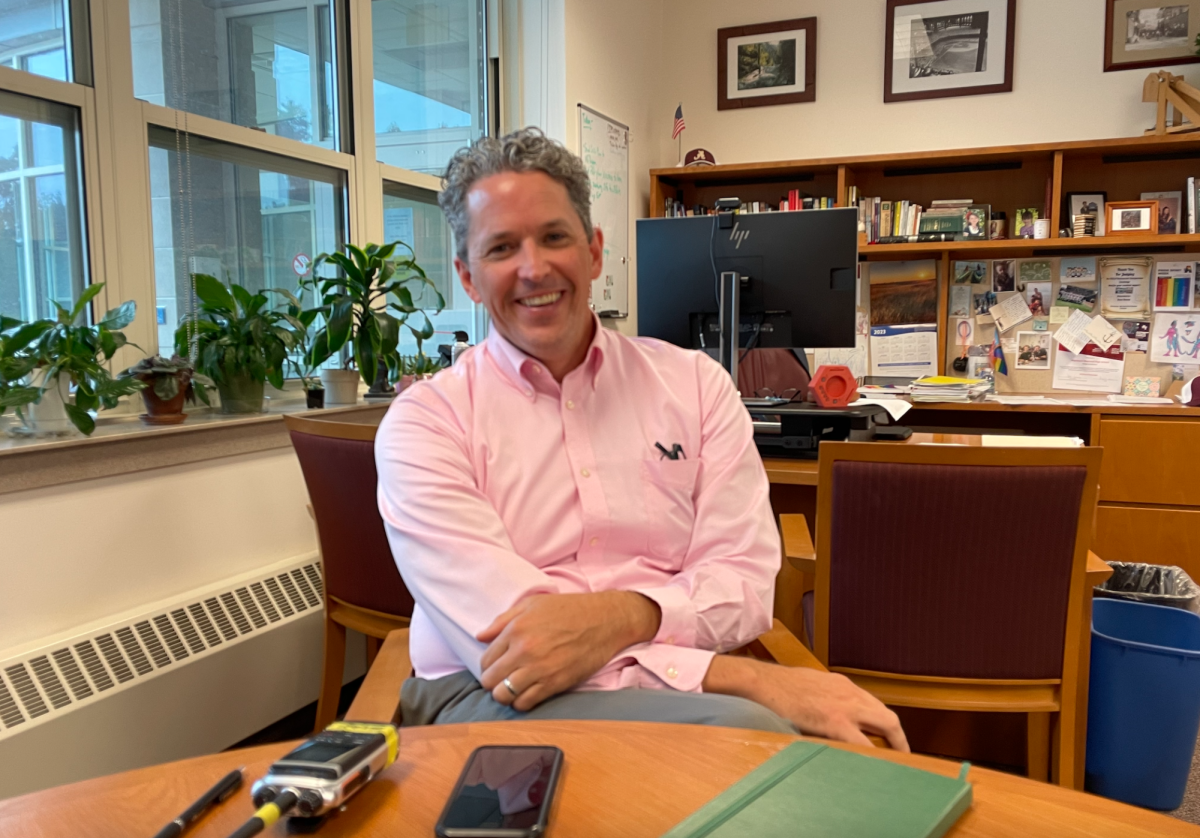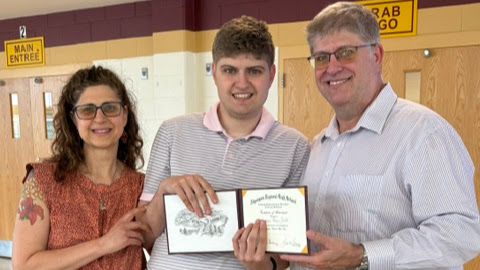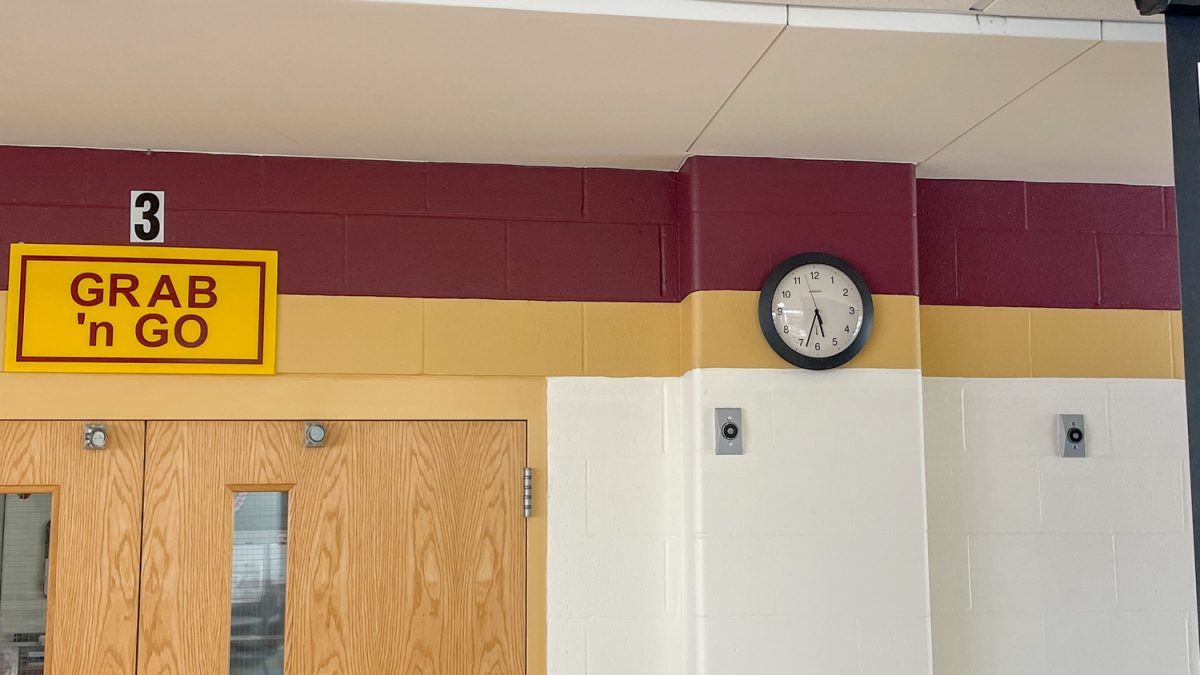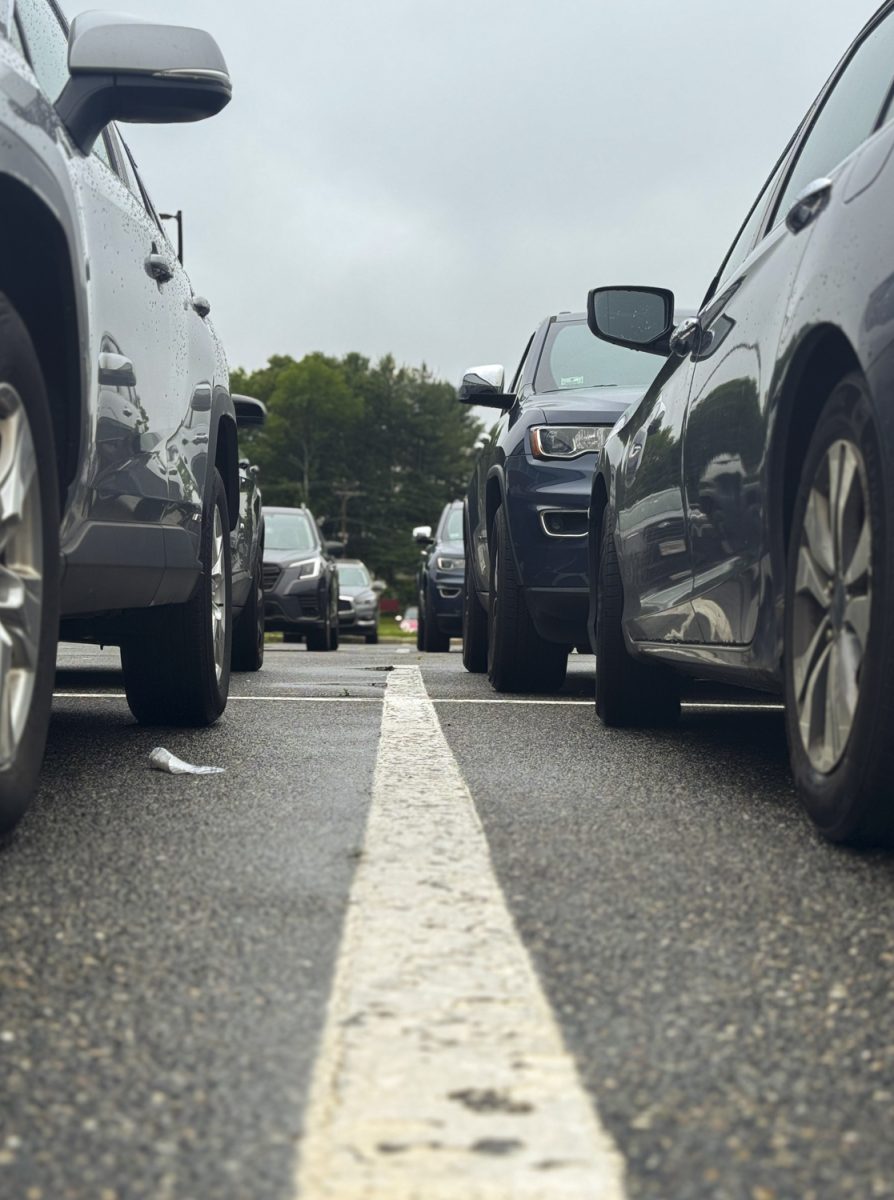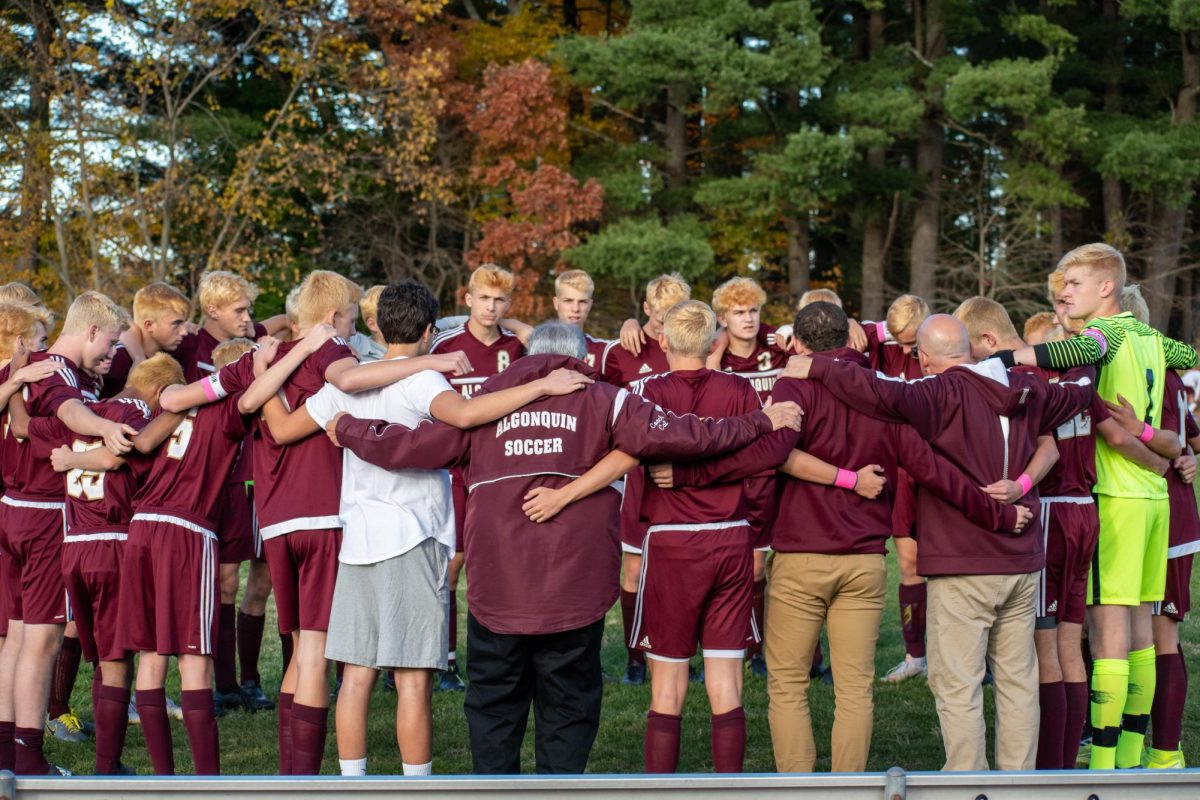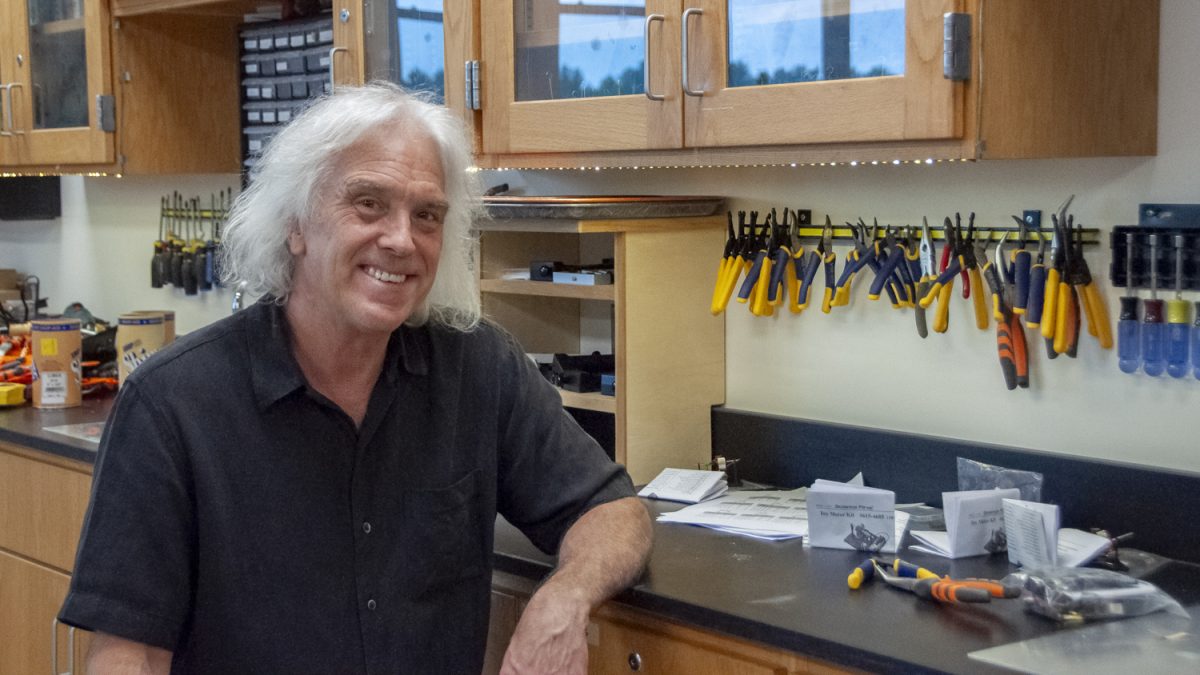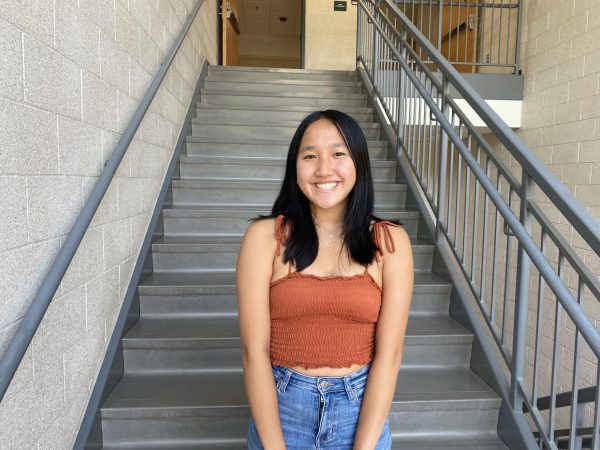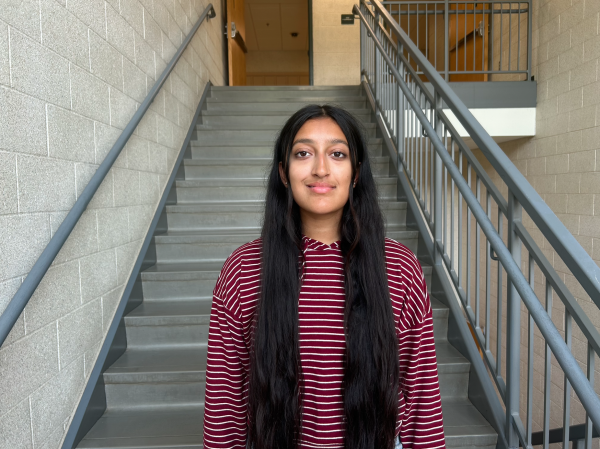What are you most excited about for this school year?
“At every school where continuous improvement is the focus, you always have something new and exciting that you’re undertaking. I think that is true for us this year heavily with the athletic complex. Seeing that come to fruition will be exciting.
I think the really high-level view of our school over the last several years is that we undertook a massive mascot change, a rebranding and now the athletic complex. This is my fourth year, so in the three full years [I’ve been here] we’ll be looking at a really significant adjustment in those areas.
I’m excited that now we are yet another year away from the pandemic and some of its impacts are starting to fade away a little bit. Even though I think that was such a difficult period, I think we’re not thinking so much about what the long-term effects are because we’re back in a full year with really no concerns there. I anticipate that it should be a really great year.”
What are some of the most important things you and your team want to work on this term?
“One of the things we talked about last year and we weren’t totally successful in changing is that attendance can be a real challenge. I think some of that is that coming out of the pandemic, we were not encouraging kids to maintain really strong attendance. However, all the data that has existed before and after the pandemic suggests and shows that students who aren’t in school are falling behind.
Really encouraging and incentivizing students to maintain good attendance and rewarding them when they do is going to be a real focus this year. Another focus is asking teachers, ‘How do we keep students fully engaged and enthusiastic about their learning when they’re here?’
I think those are two interrelated strategic objectives that we have, that when students are here, we want to make sure that they’re fully engaged and I think that will incentivize them to be here more and be more excited when they are here. Also, it’s hard for our teachers when students’ attendance isn’t what [it] needs to be. Students are falling behind and thinking they can get caught up using just asynchronous digital tools that just don’t provide the same quality that direct instruction has or provides.”
In an update sent on Aug. 19, Superintendent Martineau mentioned that unexpected challenges in Gonkplex have been managed well. What were some of the unexpected challenges and how were they managed?
“There are a few different ones. It’s an eight million dollar project, with two huge field renovations and competing timelines for all kinds of different contractors. No one singular person does all the things, of course. For example, one of the things we saw was that there was a production delay for the actual physical grandstands that you’ll be sitting in someday, related to the supply chain issues that we see across the country. In the same way that you might have a hard time buying a new car currently, the supply chains were impacted by the pandemic.
When the project got approved in April, we did not know that that was the case. It turns out that delayed us for a month or so. Another example is the rain. The summer was actually a summer where we had a lot of good weather, but the periods of bad weather were significantly heavy rains and that was not totally unforeseen, but also you literally can’t work in the rain that we experienced. I’ve been very satisfied and pleased with the efforts of the construction crews out there. Whenever I’m out there, there’s a very large number of people using a whole bunch of heavy equipment to do work quickly, but there’s only so much you can do if the weather doesn’t cooperate.”
According to the update, Gonkplex construction is off schedule. How are the delays affecting fall sports?
“They’re affecting sports in the ways you might imagine, which is that we’re not able to host practices or games until we have the certificate of occupancy for those two fields. We’ve been forced to use our grass fields more than we might otherwise, to use other fields in town and around town and even to use some of our neighboring schools’ fields when they’re not using them. This is pretty typical; every school that has an updated athletics facility has had to rely on neighboring schools and outside fields to meet that short-term need.
Luckily, this project was started the literal day after graduation and shovels were in the ground that day, so I don’t think we could have started it any sooner. The completion date will be about as quickly as we can get it done, given the delays that we’ve experienced. We’re just going to have to all tolerate the difficulties and get through them together knowing that this is a short-term inconvenience for a long-term benefit.
The difficulty or the upset is you won’t be at your home stands to cheer on a nighttime athletic event like soccer, football or something like that. These inconveniences are pretty significant, but I also think they will be easy to forget once we are very happy with this facility once it’s completed.”
Another change for this year is that parking spots are numbered and that spots are assigned for students. What is the reason for this change?
“There are a few different reasons, but the main reason is that we have a lot of parking all around our building. It’s very difficult for administrators to manage, because they just can’t go up and down the rows of parking to check parking stickers and parking tags; there’s just not enough hours in the day for them to do that. We identified a system that’s pretty self-managed that student drivers would be able to have a spot that they can reliably know is going to be there for them every single time. If somebody parks in their spot, they just report it and we deal with it.
That will allow us to know who’s parking where and when that’s not happening properly. I think there’ll be some downsides for students who really liked having a lot of agency and independence, but I think it will also allow students to have such reliability. They’ll always know, ‘If I leave my house at this time, I know where I can park because my parking spot is afforded to me.’
I recognize the inconvenience for students because the building is so physically big. You’ll have students who might some days prefer to park by the gym because they may be playing an afternoon sport, but there are other days where they want to park up off of H200 because they want to get home and beat the buses. I think that is a population that’s not going to love this. We got some feedback about that. That’s the cost of having a system that has some regulation to it; the predictability is higher, but the flexibility is lower.
We’re able to know who’s purchased a parking pass, and we’re able to intervene when a kid is parking on campus and has not purchased a parking pass to do that. It’ll also reduce how much students are able to slide out of the building without doing the regular process, and that becomes a bit of a student safety issue. I think we have something like 750 or 800 spots. We certainly have ample parking, but it just wasn’t working well for us to know where students were at all times when they could park almost anywhere. We also had very limited ability to ensure that the students who paid to park were parking here and the students who hadn’t paid to park were not also abusing that.”
When did the idea/plan for assigned parking arise?
“We started talking about that last year when we noticed that students were leaving the building for senior privileges without signing out and students who weren’t seniors were leaving the building without signing out. With four administrators, it’s a literal impossibility to incentivize them to come back in, to be using our systems properly without having some other tools. This is a tool we needed to employ. It’s actually probably more common than it is less; most schools have some type of assigned parking. We were really kind of an unusual case in that we didn’t have assigned parking, and in my former school where I was the principal, we had assigned parking and it worked with no drama and was really easy to implement. We didn’t have to spend a lot of administrative time trying to track kids down who parked improperly. It was really self-governed. What we’re aiming for is to just give time back to [assistant principals] Ms. [Janet] Brown, Mr. [Andrew] McGowan and Ms. [Cathleen] Carmigniani to be able to not worry about chasing down parking or senior dismissal issues so that they can do things related to instruction or build relationships with students.”
What was something you spent a lot of time working on this summer?
“The athletic complex was a fair amount because we’d meet every week and talk through new challenges, changes or unforeseen things that came up. We had more hiring from the spring that we weren’t able to complete until the summer…we’re very excited about the people who are joining us.
I sometimes use the summer to just read and think about the strategic objectives that we have and how to make our school experience a really exciting one for kids and to make it relevant, accessible, fun and also rigorous, all the things that make school both challenging but also rewarding. I try to think about how I can do that more or better each summer.”
What’s something fun you did this summer?
“I got to go away with my whole family. My brother and sister and my parents all got together with all of our families and had a week-long vacation together, which we’ve never done before. It was to celebrate my parents’ 50th anniversary, so that was a real milestone for them. It was really fun; I see my brother and sister sometimes, but not as much as I would like to. They live in New York, where I grew up, and so it was nice to spend a week together with them and to see my parents as well.”
What is something you would do differently this school year than last school year?
“I think last year we struggled with technological issues. I think we consistently kept trying to deal with them week to week. I don’t know that you could do that any differently than we did, but I’m confident we’ve rectified the major challenges of technology this summer.
If I look back on last year, I think it would be continuing to do a better job of asking students about what their experience was like or doing a better job of asking teachers, ‘How hard is it when you’re planning your lessons and your technology’s not functioning properly?’”
What would you like students to know as they begin this school year?
“There’s another change we are going to undertake at some point this year. We’re increasing our focus on expanding how much students hear about, understand and have access to career opportunities than we’ve had in the past. That will look like a few different things. I wrote a grant with Ms. [Lisa] Connery, the Director of Guidance, to get an account on a software platform that allows students to, with their teachers, help make connections to professionals from all around the world. For journalists, you might be able to arrange a Zoom interview with a journalist from San Francisco or Tokyo or London. That’s a very small piece of it; the larger piece is that we’re going to be hiring somebody to fill a new position that we’ve never had before, called the Career Exploration and Innovation Leader.
That person will be establishing internships either during the school year and school day, or maybe even helping students to identify and find internships for their summers. We’ll be doing things like training students on resume writing, interviewing and establishing a network, so that they can be more successful in their career objectives.
Historically, what we’ve done is if students ask us about those things, we do our best to provide those as support, but I think every student can benefit from those kinds of things for lots of reasons. One of them is to know why they’re learning the things they’re learning. It’ll help create a linkage between why you’re learning math and science and English and social studies and other things, between that and why college is important maybe for you and what kind of careers exist for them. I actually think that person’s going to be quietly a real change for our school and community.
A lot of schools have this position. A lot of schools don’t, too. I’m really excited about that. That job got posted a few weeks ago and we’re going to be interviewing and looking to hire somebody for that pretty soon. Seniors may see some benefits there. I think our juniors and sophomores might see more significant benefits, but I’m really excited about that.”
Is there anything else you would like to add?
“I know I’m the principal and this is the job I do, but I’m enthusiastic about the start of the school year. I love having my summers off, but I do get legitimately and authentically excited about the start of the year. I love the school, our kids and families are terrific and our staff is excellent.”



